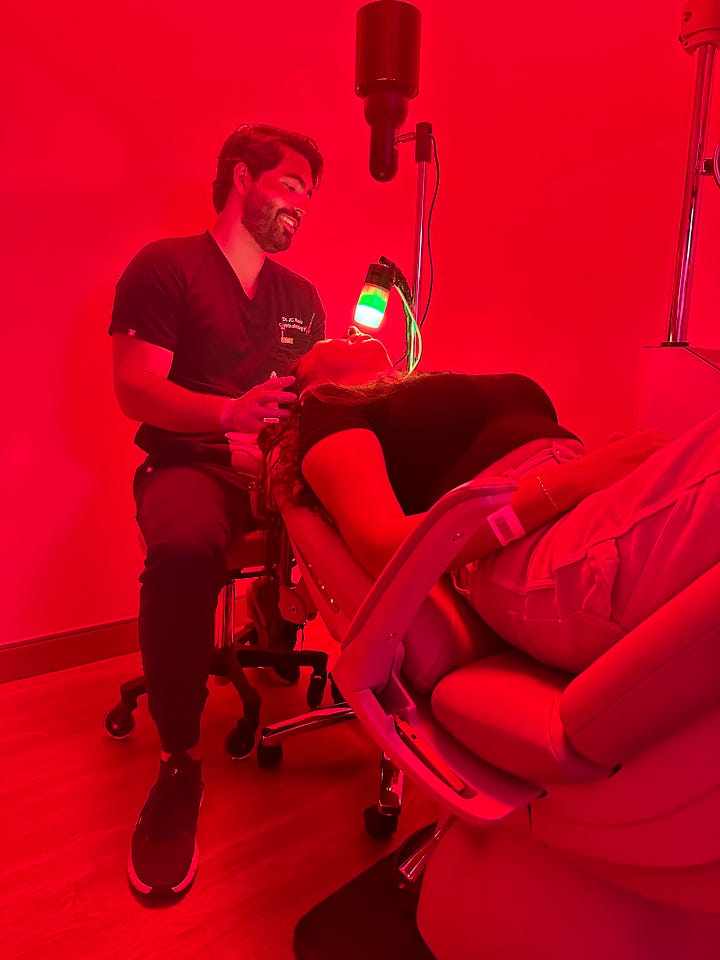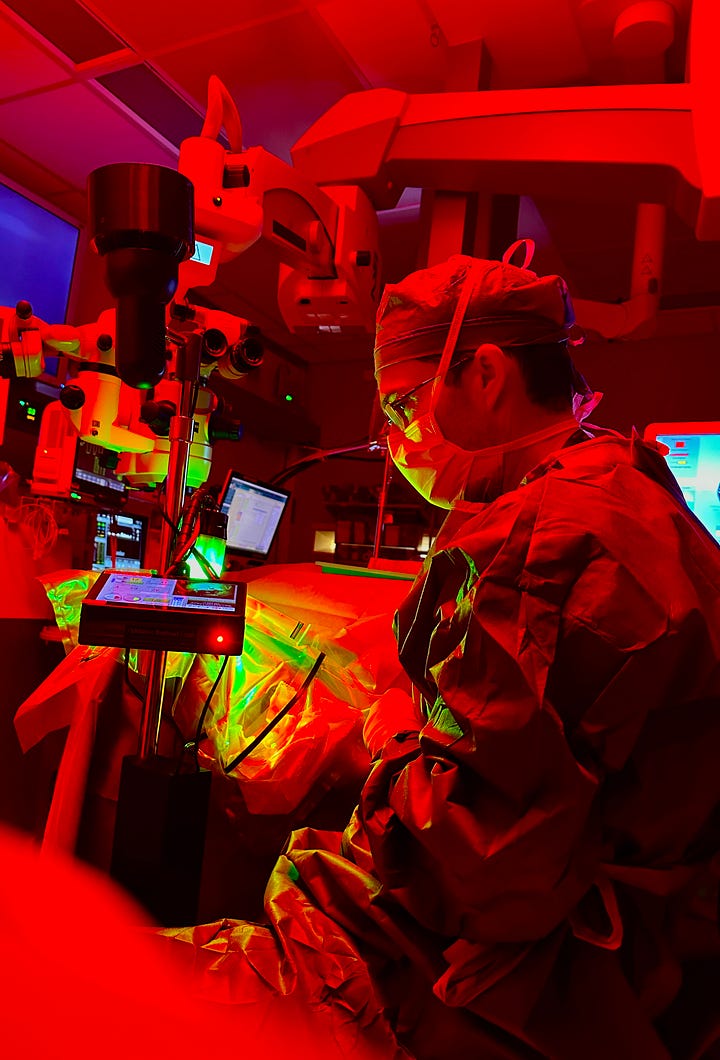VisiRose: Blocking and Tackling
Seed Financing Press Release • Syndicated News Story • India Study Data • Regulatory Work
VisiRose Seed Financing
On Tuesday, January 14, 2025, VisiRose and Provectus both issued press releases to announce VisiRose’s first investment round:


VisiRose’s seed financing round is supporting several key ongoing initiatives:
Preparing for and completing a pre-investigational new drug (IND) submission meeting with the FDA for RB-PDAT for infectious keratitis,
Preparing and submitting an IND application for investigational eye drug PV-305, and working towards the IND’s acceptance by the FDA (as well as approaching Center for Devices and Radiological Health [CDRH] on the medical device side for feedback),
Manufacturing an initial clinical supply of PV-305 for VisiRose to initiate clinical trials and undertake expanded access post-IND acceptance, and
Applying for Small Business Innovative Research (SBIR) grant funding to support VisiRose’s clinical development of RB-PDAT for infectious keratitis and to undertake more novel research with Bascom Palmer Eye Institute (BPEI).
VisiRose Syndicated News Story
We worked with a vendor through our IR firm Alliance Advisors Investor Relations to develop a story about Rose Bengal Photodynamic Antimicrobial Therapy (RB-PDAT), BPEI, and VisiRose that could be syndicated in on-line news outlets across the country.
The goal of this initial story, Noninvasive Eye Infection Treatment Shows Promise, was to start laying the groundwork for building awareness. The story was first picked up by health and other editors, or the like, at ~2,600 online sites since late-last week. Here is an example of the placement of the story.
India Phase 3 RCT results
We believe the results from the India trial may be first presented at World Cornea Congress (WCC) IX, taking place March 20-22 in Washington, DC, and that the first author on the paper from last summer discussing the trial, Dr. Venkatash Prajna, is the one giving the presentation at the WCC. This is, of course, speculation on our part.
As background, the sponsor of this study, Rose Bengal Electromagnetic Activation With Green Light for Infection Reduction (REAGIR) (NCT05110001), is the University of California, San Francisco (UCSF). Since it is a U.S.-sponsored study, an IND application should have been filed for the study, but its very likely a research IND filed by the lead U.S. investigator, Jennifer Rose-Nussbaumer, MD, formerly of UCSF and now of Stanford University. These INDs are very different than corporate INDs, and typically meant to facilitate clinical research work.
Regulatory trench work
VisiRose’s regulatory consultants have been working to further develop its thesis to the FDA for VisiRose’s pre-IND submission meeting, and meeting with BPEI to aggregate, categorize, and assess its data before moving to data at international locations where BPEI RB-PDAT was studied in clinical settings (e.g., India, Brazil, Mexico, etc.). This work will also help define the prospective timeline for the pre-IND submission meeting and the IND submission, among other things.
Forward-Looking Statements
The information provided in this Provectus Substack Post may include forward-looking statements, within the meaning of the Private Securities Litigation Reform Act of 1995, relating to the business of Provectus and its affiliates, which are based on currently available information and current assumptions, expectations, and projections about future events and are subject to a variety of risks and uncertainties and other factors that could cause actual events or results to differ materially from those projected in the forward-looking statements. Such statements are made in reliance on the safe harbor provisions of Section 27A of the Securities Act of 1933 and Section 21E of the Securities Exchange Act of 1934. Forward-looking statements are often, but not always, identified by the use of words such as “aim,” “likely,” “outlook,” “seek,” “anticipate,” “budget,” “plan,” “continue,” “estimate,” “expect,” “forecast,” “may,” “will,” “would,” “project,” “projection,” “predict,” “potential,” “targeting,” “intend,” “can,” “could,” “might,” “should,” “believe,” and similar words suggesting future outcomes or statements regarding an outlook.
The safety and efficacy of Provectus’s drug agents and/or their uses under investigation have not been established. There is no guarantee that the agents will receive health authority approval or become commercially available in any country for the uses being investigated or that such agents as products will achieve any revenue levels.
Due to the risks, uncertainties, and assumptions inherent in forward-looking statements, readers should not place undue reliance on these forward-looking statements. The forward-looking statements contained in this Provectus Substack Post are made as of the date hereof or as of the date specifically specified herein, and the Company undertakes no obligation to update or revise any forward-looking statements, whether because of new information, future events, or otherwise, except in accordance with applicable securities laws. The forward-looking statements are expressly qualified by this cautionary statement.
Risks, uncertainties, and assumptions include those discussed in the Company’s filings with the U.S. Securities and Exchange Commission, including those described in Item 1A of Provectus’ Annual Report on Form 10-K for the period ended December 31, 2023 and on Form 10-Q for the period ended September 30, 2024.




